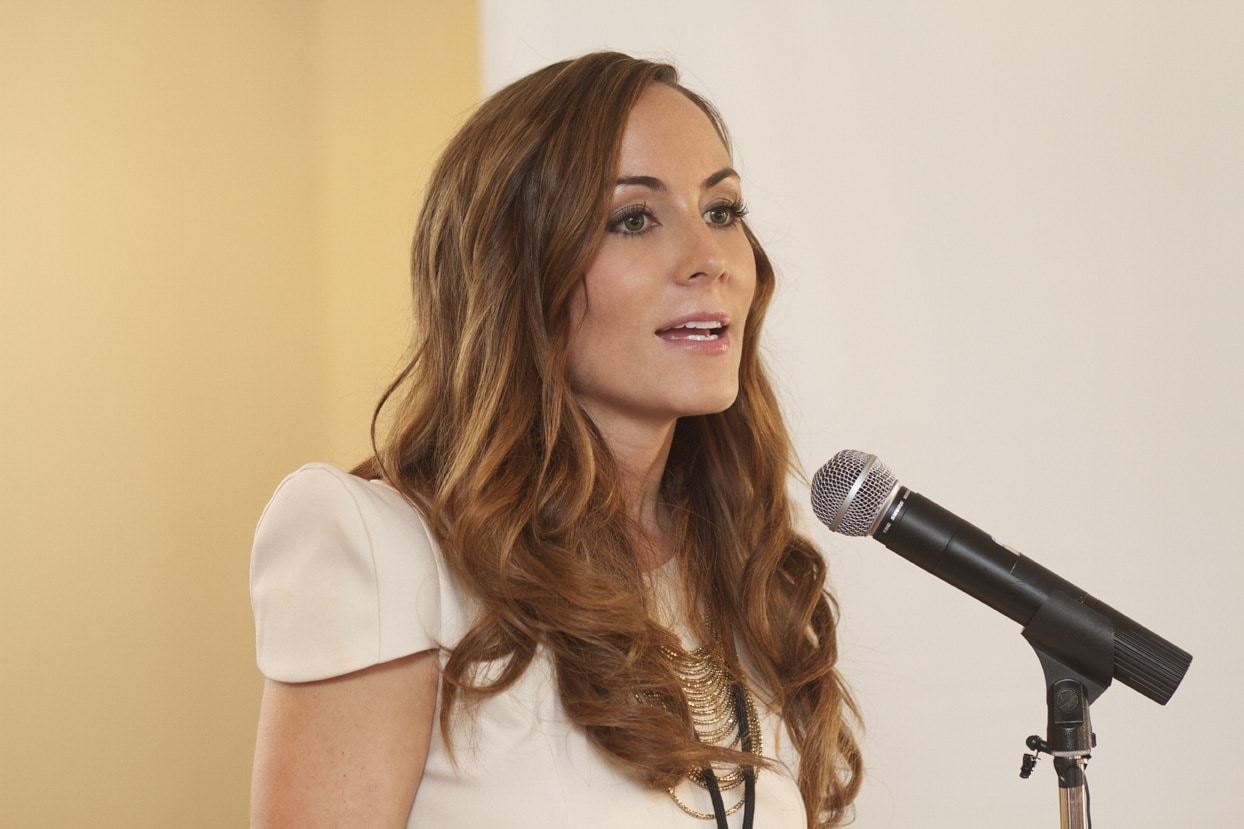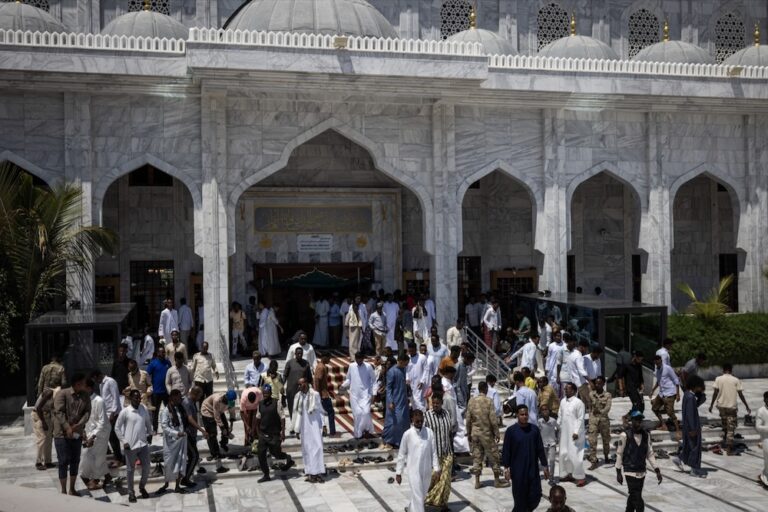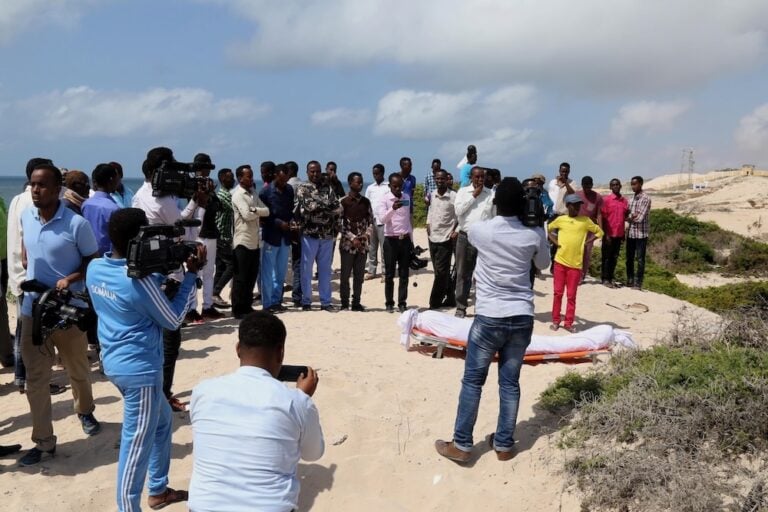Nearly seven years after Amanda Lindhout was kidnapped in Somalia, along with Australian photographer Nigel Brennan and translator Abdifatah Elmi, one of the alleged masterminds behind their ordeal has been charged.
This statement was originally published on cjfe.org on 19 June 2015.
Nearly seven years after Canadian freelance journalist Amanda Lindhout was kidnapped in Somalia, along with Australian photographer Nigel Brennan and their translator Abdifatah Elmi, one of the alleged masterminds behind their ordeal is finally being prosecuted. Officials with the Royal Canadian Mounted Police (RCMP) announced on June 12 that Somali man Ali Omar Ader had been arrested in Ottawa and charged with kidnapping; Abdifatah, Brennan and Lindhout were taken at gunpoint in Mogadishu by Islamist insurgents on August 23, 2008.
While Abdifatah was released after five months, Lindhout and Brennan spent 15 months in captivity, during which time the two were kept separate and repeatedly beaten and tortured; Lindhout was also sexually assaulted. The journalists were released on November 25, 2009, after their families paid a combined ransom of $600,000. Ader was allegedly one of the masterminds behind the kidnapping and hostage negotiations, with Lindhout’s mother being “terrorized” by frequent phone calls demanding ransom payments throughout her captivity.
It’s unclear at this time what tactics were used by the RCMP to bring Ader to Canada and orchestrate his arrest, but RCMP assistant commissioner James Malizia confirmed that Ader had been targeted in Somalia and brought to justice through a combination of undercover work, surveillance and wiretaps “in an extremely high risk environment.” Upon learning of Ader’s arrest, Lindhout reportedly “fell to her knees and sobbed.” Brennan responded to the news on Twitter:
Amazing news of the arrest of Ali Omar Ader, AKA Adan the Somali criminal involved in my kidnapping. Finally Justice will be served! #Karma
— Nigel Brennan (@thedirtyhostage) June 12, 2015
It’s incredibly difficult to achieve justice in cases where journalists are kidnapped by militant groups, as these organizations often operate in countries where the rule of law is weak, if not non-existent. Somalia is fairly exemplary of this condition; the country ranked second on the Committee to Protect Journalists’ 2014 Impunity Index, which measures the frequency with which journalists’ murders go unpunished in countries around the world. Of 27 journalists who have been killed in Somalia since 2005, there has only been one conviction.
The arrest of one of the suspects in Amanda Lindhout’s kidnapping is an important step towards ending impunity in this case; however, Ali Omar Ader did not act alone, and Somalia remains one of the most dangerous countries in the world for journalists. It ranks 172nd out of 180 countries listed on Reporters Without Borders’ 2015 World Press Freedom Index.
CJFE urges the Somali government to take concrete steps towards creating an improved climate for press freedom in the country, as well as ending impunity for crimes against journalists.



